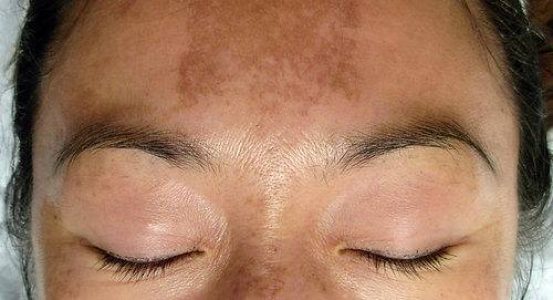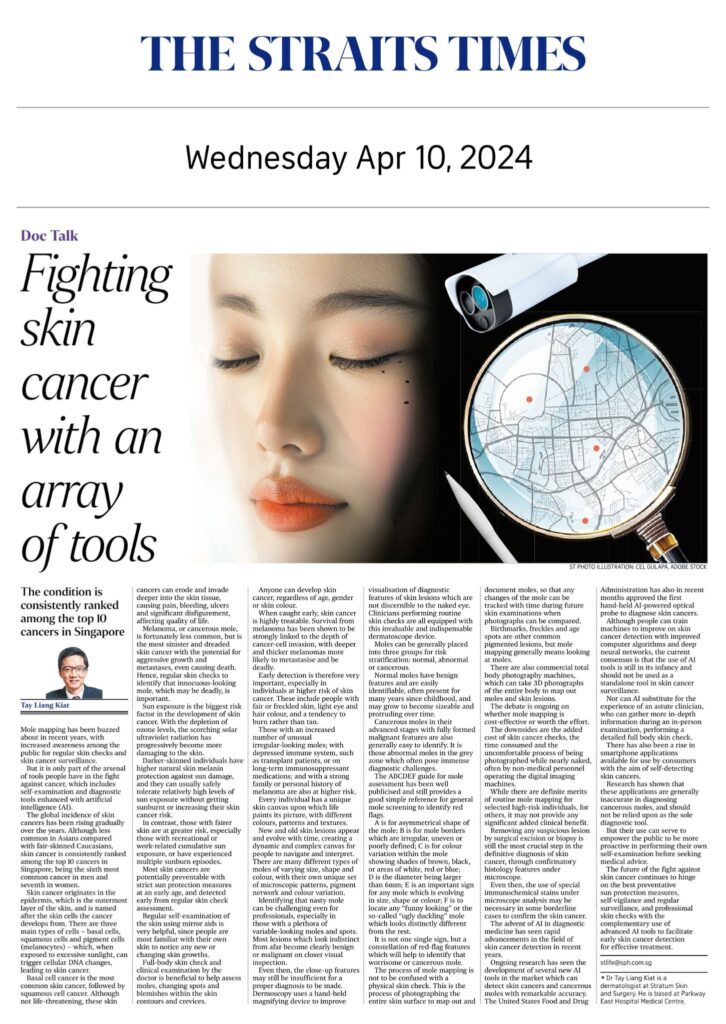Sun Damage and Types of Skin Cancer

Too much exposure to UV radiation from the sun or sun tanning beds can damage the DNA in our skin cells, causing build up of DNA damage over time. The skin loses
the ability to repair itself over the years, and the cells start growing out of control,
leading to skin cancer.
Anyone can develop skin cancer, but some people are at higher risk, such as fair skin individuals, those who burn more easily under sun exposure, and strong family history of skin cancer.
Types of Skin Cancer
There are 3 main types of skin cancer:
- Basal cell cancer (BCC)
- Squamous cell cancer (SCC) and
- Melanoma (cancerous mole)
The first two are both known as non-melanoma skin cancer and are the most common skin cancers.
Non-melanoma skin cancer (BCC, SCC) develops in the upper layers of the skin as a lump or discoloured patch on the skin.

Melanoma is less common but can be more serious and aggressive as it can spread to other parts of the body. It presents as a changing irregular mole.
DISCLAIMER:
The information written and published on this website is not intended to substitute the recommendations of a trained professional and does not replace a professional consultation.
It is advisable to undergo a formal consultation to help establish a relationship between the doctor and yourself, accurately determine your concerns/problems, and get the appropriate treatments for them.
It is also imperative to note that the contents of the website with respect to treatments, results and pricing can vary from individual to individual, and can only be accurately determined by the doctor upon diagnosis.
Do note that all medical treatments will only be administered upon proper consultation, with the requirement that patients be above 21 years of age to provide legal consent.
Skin Cancer
Meet your Dermatologist

Dr Tay Liang Kiat
Dermatologist
Dr Tay Liang Kiat is a fully accredited Dermatologist who specialises in skin cancers, Mohs micrographic surgery, dermatologic and nail surgery, aesthetic dermatology and laser procedures. With more than 20 years of clinical experience, he also manages other aspects of general ambulatory and inpatient dermatology, including eczema, psoriasis, acne, urticaria, hair loss, children skin issues and other complex medical dermatology. In addition, he has expertise in the use of the latest immunotherapy (biologics) treatment for severe eczema, psoriasis and urticaria.



